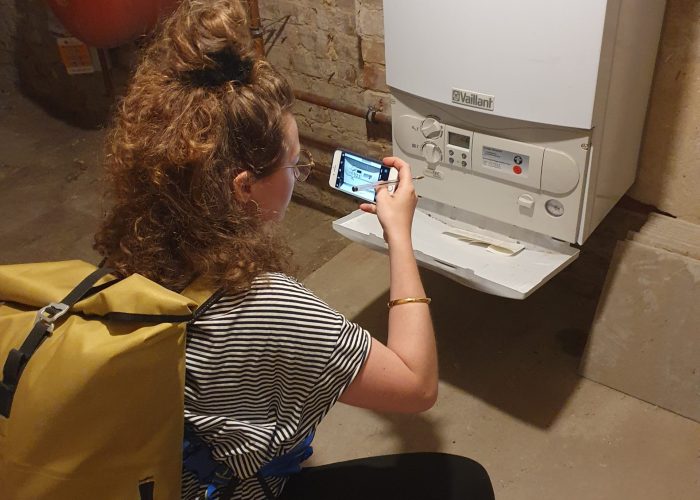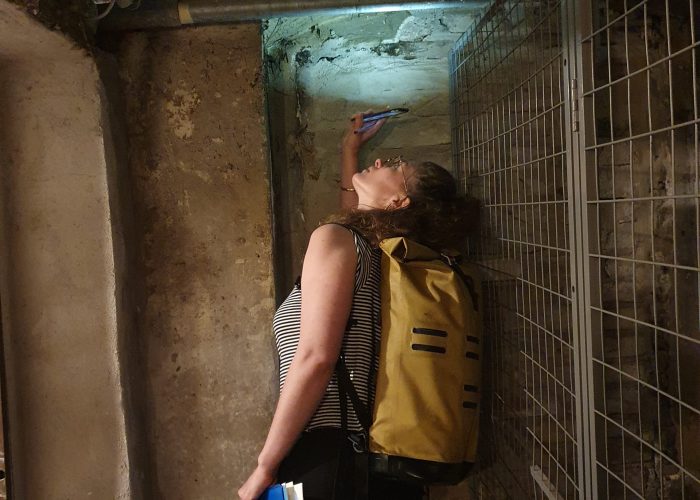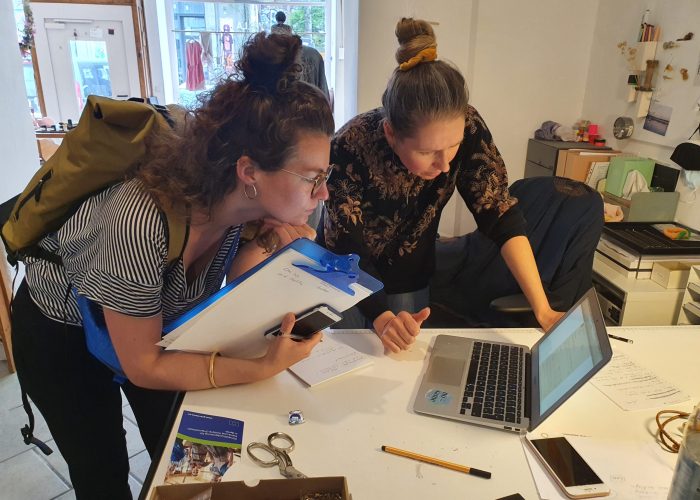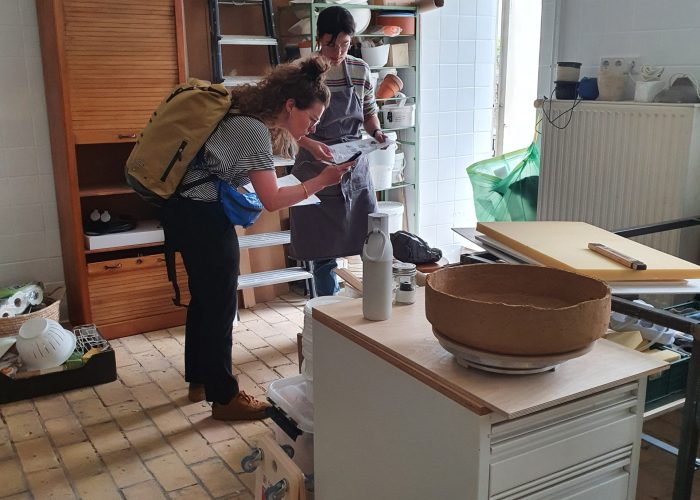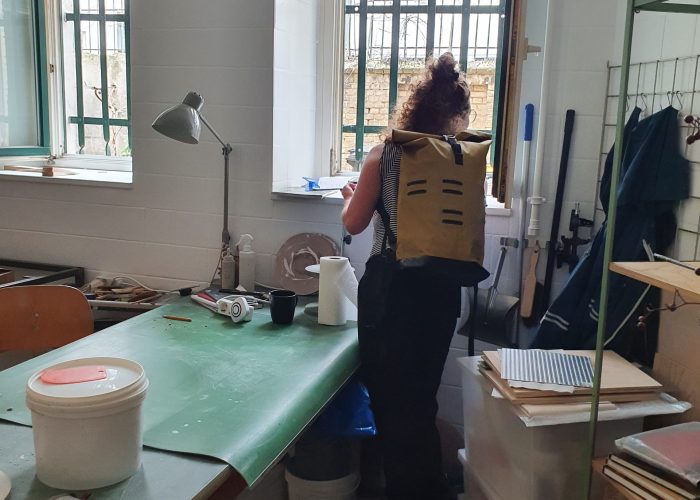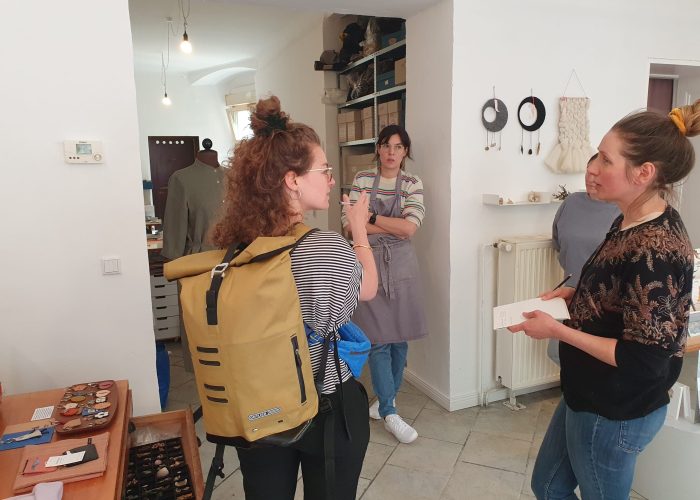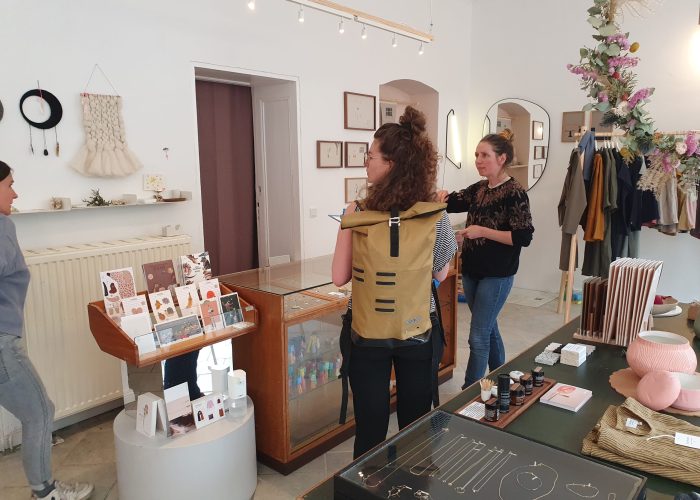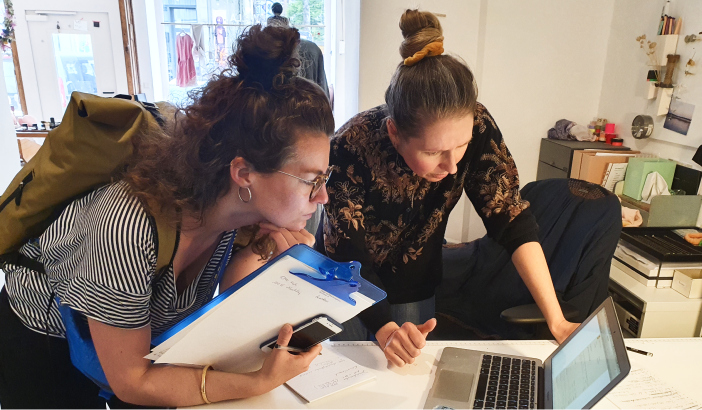
01 Jul What actually happens during an Energy Scan? – When Julie Silvestre visits your business, no energy waste goes undetected
Berlin – It’s a warm summer’s day – for entrepreneur Stefanie Koch of the boutique “Willa” in Kreuzberg, a reason for joy not only because of the good weather. Above all, she is glad that she doesn’t have to use her heating at the moment. In the last few weeks, she has realised how much her gas heating has cost her.
Luckily, Julie Silvestre from the Berlin Energy Agency is doing an Energy Scan in her shop that day. This is a kind of low-threshold energy audit specifically for small and medium-sized enterprises (SMEs). As part of the EU-funded GEAR@SME project, these energy and carbon footprint checks are offered free of charge to SMEs in Berlin. They help companies to understand where they stand in terms of energy and where they are hiding potential for saving energy and thus also costs.
In addition to Berlin, further pilot projects are being implemented as part of GEAR@SME in Meierijstad in the Netherlands, in Bologna in Italy and in Cluj-Napoca in Romania. On the online portal energyefficientsme.eu, which was developed in the project, concrete tools, best practices and training materials for more energy efficiency in SMEs can also be downloaded free of charge.
Image Copyright: (Anna Brüning-Pfeiffer/ BEA)
The boutique “Willa” with sustainability aspirations only opened in autumn 2021 and consists not only of the salesroom, but also an office space and a ceramics workshop. It is located in a typical Berlin old building with a lot of history – and thus also a lot of listed buildings. “As a tenant, I’m sure I can’t do that much in terms of energy anyway,” Stefanie Koch is initially still sure. But Julie Silvestre inspects every room with her and documents all the energy guzzlers she can find.
It turns out that there are still a few things that can be done to improve energy efficiency. For example, some of the lamps do not yet have LED lights, the printer should not be switched on permanently. And the ancient vents with the hole in the window panes, through which the heat energy escapes in winter, could be replaced with normal window glass. A discussion with the landlady could bring a quick solution. Stefanie Koch would then not have to heat so much in winter. Julie Silvestre is also taking a close look at the cellar rooms and the boiler. Just like the kiln in the ceramics workshop. Finally, there is a discussion about supply chains, the data from the utility bill, user behaviour and other aspects that are necessary to determine the shop’s carbon footprint.
Stefanie Koch is very satisfied after the Energy Scan. She learned a lot and was able to ask the energy expert many questions directly and at eye level. In a few weeks, she will receive her report on the Energy Scan. For her, this is the first step towards a climate-friendly SME.
Would you also like to have an Energy Scan carried out in your company or take advantage of another free advisory service offered by the Berlin Energy Agency? Please contact us!
Julie Silvestre
Berlin Energy Agency
Phone: +49 30 29 33 30-496
E-mail: silvestre@berliner-e-agentur.de



